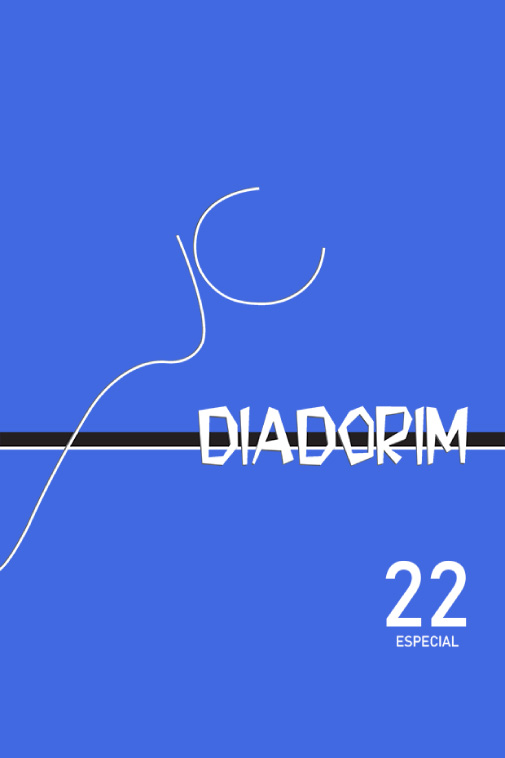Silenced violence in the feminine: a reading of Yara Monteiro’s Essa Dama Bate Bué!
DOI:
https://doi.org/10.35520/diadorim.2020.v22n3a36023Keywords:
violence, women, Angola, colonial and civil warsAbstract
Based on the most recent research on women and violence during the colonial and civil war periods which defined post-independence Angola, I analyze Essa Dama Bate Bué!, a novel written by writer Yara Monteiro. My objective is to show, on the one hand, how the novel tells us that writing about personal matters means writing about politics. On the other hand, it is my intention to explore how the writer explores the issue of female violence by creating female characters who enact violence on other women, specifically their own children. Monteiro’s novel demonstrates the interconnectedness of violence, public and private, and its effect on social and psychic life. In sum, my goal is to highlight the silenced forms of familial violence within the broader context of colonial and civil conflicts in Angola and their repercussions in the country’s post-independence.
References
CABAÇO, José Luis. Violência Atmosférica e Violências Subjectivas. Uma experiência pessoal. Revista Brasileira de Ciências Sociais, vol. 26, nº 76, pp. 213-218, 2011.
CARUTH, Cathy. Unclaimed Experience: Trauma, Narrative, and History. Johns Hopkins UP, 1996.
CRENSHAW, Kimberlé. Demarginalizing the Intersection of Race and Sex: A Black Feminist Critique of Antidiscrimination Doctrine, Feminist Theory, and Antiracist Politics. University of Chicago Legal Forum, pp. 139–67, 1989.
FANON, Franz. Black Skin, White Masks. Grove Press, 1967.
HEMON, Aleksandar. The Book of My Lives. Picador, 2013.
HENRIQUES, Joana Gorjão. Yara Monteiro. “Sou trineta da escravatura, bisneta da mestiçagem, neta da independência e filha da diáspora.” Ípsilon March 21 2019. < https://www.publico.pt/2019/03/21/culturaipsilon/noticia/trineta-escravatura-bisneta-mesticagem-neta-independencia-filha-diaspora-1865819> Acessado em: 25 Maio 2020.
KALISA, Chantal. Violence in Francophone African and Caribbean Women's Literature U of Nebraska P, 2009.
KASEMBE, Dya; CHIZIANE, Paulina (Org.). O livro da paz da mulher angolana: as heroínas sem nome. Nzila, 2008.
MONTEIRO, Yara. Essa Dama Bate Bué! Guerra & Paz, 2018.
MOREIRA, Terezinha Taborda. História, Violência e Trauma na Escrita Angolana e Moçambicana. Cadernos CESPUC, nº 27, 2015.
PAREDES, Margarida. Combater Duas Vezes. Mulheres na Luta Armada em Angola. Verso da História, 2015.
QUAYSON, Ato. Symbolisation Compulsions: Freud, African Literature and South Africa’s Process of Truth and Reconciliation. The Cambridge Quarterly, vol. 30, nº 3, pp.191–214, 2001.
STUCKI, Andreas. Violence and Gender in Africa’s Iberian Colonies. Feminizing the Portuguese and Spanish Empire, 1950s-1970s. Palgrave Macmillan, 2019.
Downloads
Published
Issue
Section
License
Copyright transfer -- Authorization to publication
If the submitted article is approved for publication, it is already agreed that the author authorizes UFRJ to reproduce it and publish it in Diadorim: revista de estudos linguísticos e literários, the terms "reproduction" and "publication" being understood as defined respectively by items VI and I of article 5 of Law 9610/98. The article can be accessed both by the World Wide Web (WWW) and by the printed version, with free consultation and reproduction of a copy of the article for the own use of those who consult. This authorization of publication is not limited in time, and UFRJ is responsible for maintaining the identification of the author of the article.

The journal Diadorim: revista de estudos linguísticos e literários is licensed under a Creative Commons Attribuition-NonCommercial 4.0 International (CC BY-NC 4.0).

